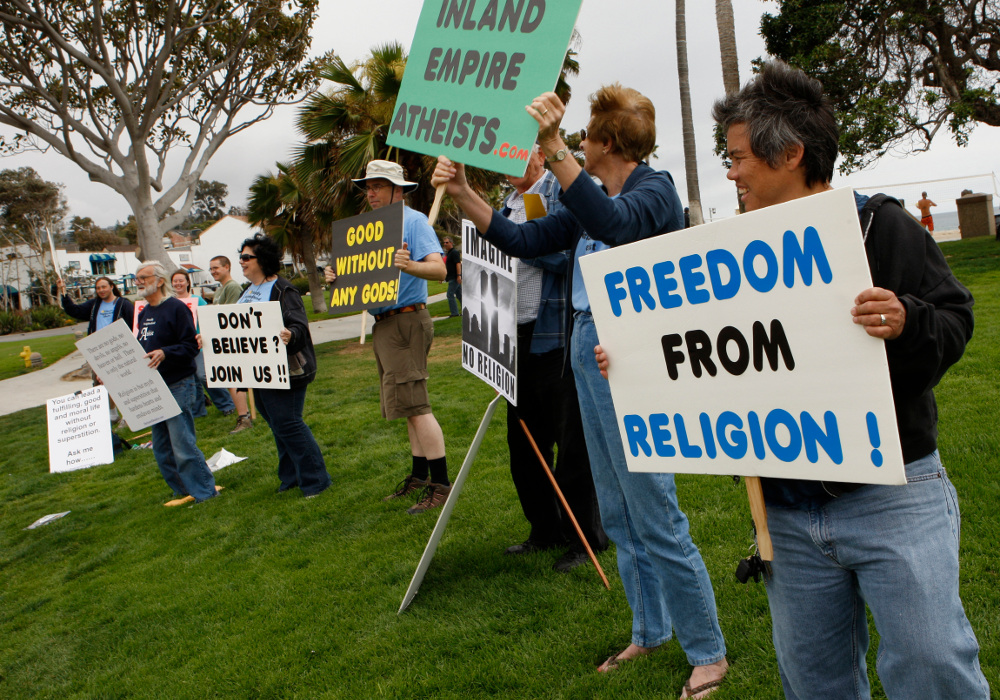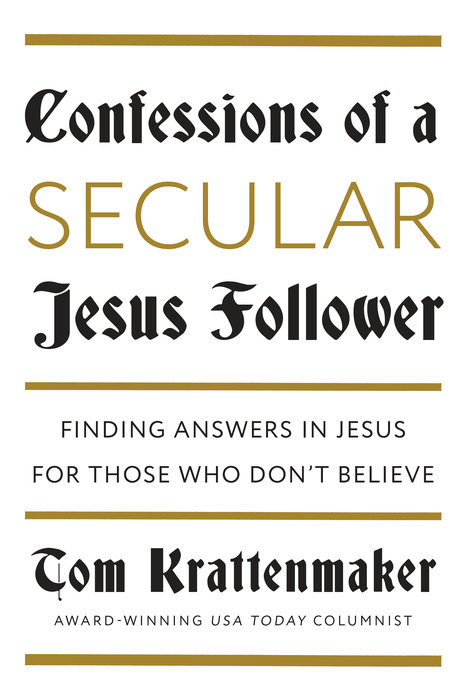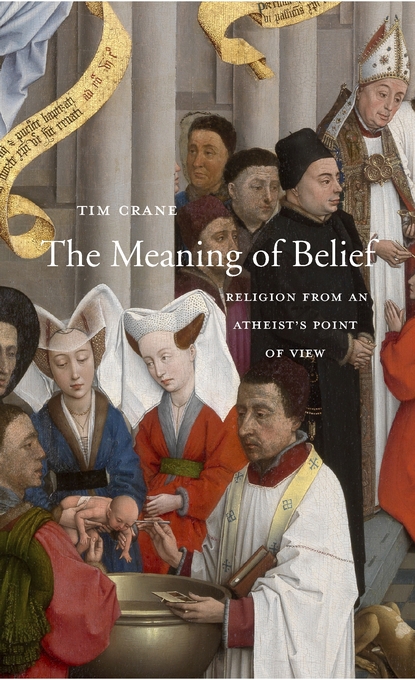
A group of agnostics, atheists and freethinkers gather for a demonstration in Laguna Beach, California, in 2010. (CNS/Nancy Wiechec)

It's an odd sensation to read several books on a worldview you ascribe to without being sure that any of it was meant for you, but that's what happened as I pursued three books that cut through a wide swath of contemporary unbelief. Those who keep up with news and discussion about religion are familiar with the subject from myriad studies, op-eds and books by and about atheists, agnostics and, of course, the nones, the growing demographic that claims no religious affiliation.
As a none whose religious convictions can be called fluid at best, the variety shown here was initially exciting. At one end of the spectrum is Unbelievable: Why Neither Ancient Creeds Nor the Reformation Can Produce a Living Faith Today, in which retired Episcopal Bishop of Newark John Shelby Spong examines unbelief in traditional doctrine; at the other is atheist Tim Crane's call for active, respectful engagement with religious belief in The Meaning of Belief: Religion from an Atheist's Point of View. Between the two is Confessions of a Secular Jesus Follower: Finding Answers in Jesus for Those Who Don't Believe, a meditation on Jesus' teachings as the solution to many of society's ills by USA Today columnist and Yale Divinity School communications director Tom Krattenmaker.
In many ways, I wasn't disappointed; in each of these books I found ideas that resonated with me, articulated in ways I had never considered before. Each book seemed to make a reasonable contribution to understandings of the variety of modes of unbelief.
And yet, as I read Krattenmaker's and Spong's books, I never felt truly included in the worldviews they presented. My reaction to Crane's was altered by his decision to speak about religion as a social phenomenon rather than any particular religious or demographic group.
It's worth noting that all three authors are well-educated white men, and while their gender and ethnicity do not negate their ability to make valuable arguments on religion and unbelief, none really deals with issues pertaining to people of color, women or LGBTQ individuals.
For Spong and Krattenmaker, especially, discussions that involve those communities feel as if little consideration is given as to what their needs and concerns about Christianity might be, or whether the ideas helpful to the author would be equally beneficial to all of his readers. In a sense, the real connective tissue between each is the privilege of the authors, who can feel free to make suggestions like denying the virgin birth or cherry-picking Jesus' teachings to suit personal needs because those authors stand to lose nothing from doing so.
Despite this concern, Spong's Unbelievable is an interesting approach to the problem of shrinking congregations and a novel response to those who say Christianity is untenable in contemporary society.
Spong's book begins with a revelation from his daughter, who feels that the questions Christianity seeks to answer are not relevant in the contemporary world. Rather than disagree or expound upon the importance of faith, Spong states that he, too, finds many of Christianity's major tenets irreconcilable with modern understandings of the world. This book is the result of his search for a Christ experience separate from what he considers to be outmoded understandings of divinity.
It's worth noting that all three authors are well-educated white men, and while their gender and ethnicity do not negate their ability to make valuable arguments on religion and unbelief, none really deals with issues pertaining to people of color, women or LGBTQ individuals.
Ultimately, he calls for a re-examination of theological symbols and the baggage they have accumulated over the centuries, a process that results in 12 theses that frame his vision for a modern reformation. Spong pulls no punches: among the symbols on the chopping block are the concept of God as a supernatural, paternal being in heaven, the Resurrection, the virgin birth and biblical miracles. Spong's ideas are exhilarating, if not a bit disconcerting; it's not every day that you see a former bishop from any denomination stating that the virgin birth destroys the idea of Jesus' divinity.
But this boldness also lends itself to what could be called a cavalier dismissal of the importance of those same symbols to many Christians. At the end of his 12 theses, Spong calls for Christian universalism that transcends all human boundaries and divisions, an argument that, taken too literally, becomes more like erasure of differences in identity rather than acceptance.
He also claims that most church divisions along fault lines like race, gender equality and LGBTQ rights are not really disagreements about theology, but personal biases. But rather than engage with the real roots of these issues, Spong suggests churches simply drop such arguments in favor of returning to purely theological debate, a suggestion that sounds nice in theory, but would likely not result in any changes in belief from those who ascribe to those bigoted beliefs.
It's frustrating to see such an exciting book hamstrung in this way, but the quality of his arguments make Unbelievable worth the read anyway.

As if in conversation with Spong, Krattenmaker has embraced the teachings of Jesus without accepting any of the doctrine that marks him as divine. He also finds the divinity of Christ and the miracles associated with him simply irreconcilable with his understanding of the world. But rather than redefine Christianity as Spong does, Krattenmaker simply divorces Jesus' teachings from Jesus' divinity, calling himself a Christ-follower, not a Christian.
Despite this distinction, Krattenmaker's book ultimately feels as comfortable and predictable as a Sunday-school sermon. Many of his solutions involve a conveniently situated Jesus-ism, whether it's the parable of the good Samaritan or his penchant for healing lepers. According to Krattenmaker, the solutions for everything from bigotry and sexual assault to poverty and mass incarceration lie in the teachings of Jesus.
Frustratingly, Confessions defies genre. Although Krattenmaker's extensive personal anecdotes make the book feel like a memoir, his discussion of those anecdotes suggest he intended to present a widely adaptable template for secular, ethical engagement with Jesus.
The unfortunate result is a secular brand of theology from which he struggles to remove himself. He seems convinced of the novelty of his secular embrace of Jesus, and he spends a lot of time discussing his own successful allyship to a great many minority groups, despite frequent foot-in-mouth moments that raise questions about how far that allyship really goes.
Advertisement
In one particularly egregious moment, he relates an incident in which he used his USA Today column to applaud Focus on the Family's evolving stance on gay rights, only to be criticized by members of the LGBTQ community because they did not feel that those changes were enough to rectify its previous stance. Though he acknowledges his rights were not the ones up for debate in this argument, he still defends himself and comes off as dismissive of those he claims to support.
Many of Krattenmaker's subsequent points similarly ignore much of the complication and nuance of Jesus and his teachings as presented in the Bible. The result is a vision of Christianity akin to the Western dilution of the Buddha and Confucius into caricatures mined for bits of feel-good wisdom.
That said, Krattenmaker's discussion of compassion and anxiety are very insightful and feel true to life; if anything, guiding readers toward a religious figure who offers consolation to the anxious and pushes the angry toward compassion can only be called a public service.

Crane's The Meaning of Belief gives voice to the atheistic end of the spectrum. Crane, a professor of philosophy at Central European University, rejects not only religion, but the way in which other atheists go about rejecting it. He uses this book to engage with new atheists like Sam Harris and Richard Dawkins. He refutes their approach to and understanding of religious life, contending that, among other points, the religious impulse makes sense as a response to the human need for connection, tradition and explanation of the world at large.
He encourages an approach to religion that presupposes atheism will never win out over religious belief, and calls for coexistence and dialogue with it as a serious partner to scientific inquiry into the world's problems.
The Meaning of Belief is a breath of fresh air. Crane's argument is as cogent and well-researched as his writing is accessible and lively. It is exciting to see someone who is unwavering in both their atheism and their defense of religion as rational response to human needs that is deserving of respect. His book should be required reading for anyone, believer or nonbeliever, who wishes to engage with "the other side" of the religious divide.
I highly recommend reading these books in conversation with one another, if only for the novelty of finding the synchronicity of ideas between authors who claim such different worldviews. Privileged worldviews though they are, each has something to offer to the never-ending dialogue on unbelief and religious change.
But afterward, please move on to theology and discussions of (un)belief from a person of color, a woman or an LGBTQ person, lest you think that Crane, Spong or Krattenmaker represents even a small fraction of the ways in which it is possible to conceive of the divine — or lack thereof.
[Alexandra Greenwald is a freelance religion reporter and writer based in Chicago.]







